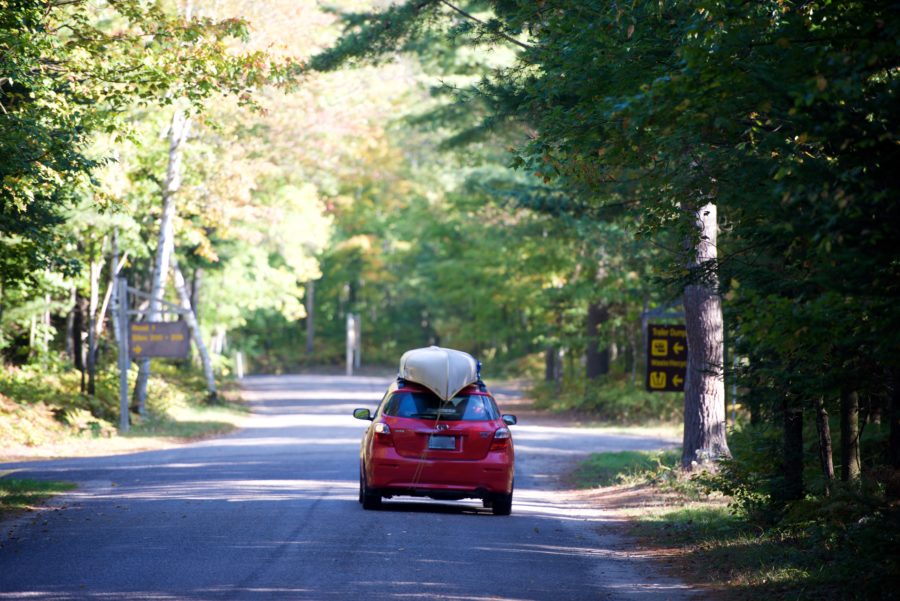The New Year is a time to take stock of where we are and where we are headed. Most of us have made resolutions to change behaviours in order to start anew in 2021: quitting smoking, eating healthier, or exercising more.
Do you consider parks and protected areas when thinking of New Year’s Resolutions?
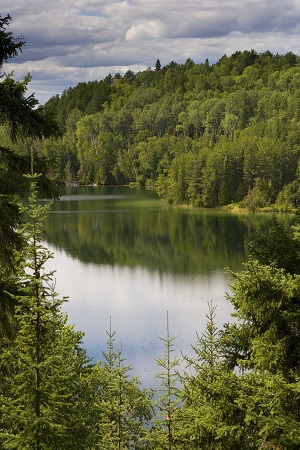 Taking care of the environment on your own may seem overwhelming. There have been successes over the past 50 years, like Earth Day and recycling. But those projects are bigger than just one person. So how can you make a difference on your own?
Taking care of the environment on your own may seem overwhelming. There have been successes over the past 50 years, like Earth Day and recycling. But those projects are bigger than just one person. So how can you make a difference on your own?
Experts say taking on just one new behaviour at a time is a recipe for success.
Here are 10 actions you can take to make a difference in your life, and in the health of parks.
Try something new
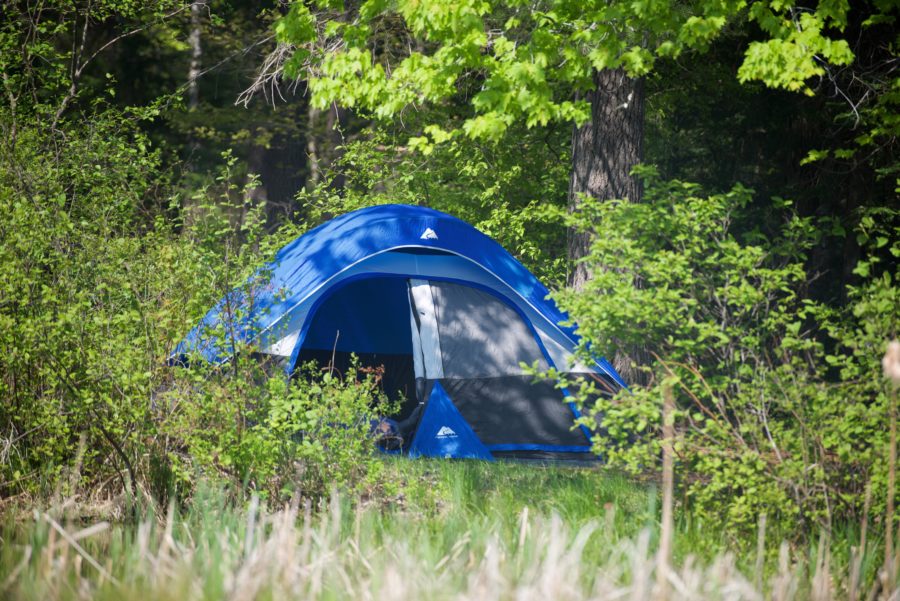
- The more you know the more you appreciate. So, branch out and explore a few new parks. You might just find a new favorite!
- There are over 340 Ontario Parks, each one protecting different natural and cultural features. We have over 18,000 car camping sites in every corner of the province. Whether you’re travelling a few minutes or a few days, there is a park out there waiting for you.
- Try camping in a different season! Each season has its charm.
Drive as little as possible
- Cars and trucks contribute to air pollution. They put stress on park infrastructure, and impose a significant impact upon animal populations through road mortality.
- When visiting parks, limit the use of your vehicle. Ride your bike or walk to the comfort station or beach.
- Many parks offer rental equipment so your can rent a bike or canoe to get around.
- This is better for the environment, and better for your health and fitness goals.
Stick to the trails

- Staying on designated trails ensures that areas or species of concern are not negatively impacted.
- In many cases, the existing trails are in the best locations to witness amazing vistas, natural events, and the power of water. Trust Ontario Parks’ choice and keep to the path.
- It only takes a few people to create an unplanned path or “shortcut.” Although you might think it harmless, these spontaneous trails can damage sensitive areas.
- If you stick to the beaten path, you’ll leave fewer footprints and have less of an effect on the environment.
Volunteer or donate to park projects

- Friends groups are non-profit organizations that enhance the programs and services offered by Ontario Parks. They support research and education, organize park cleanups, obtain grants for park projects, and assist Ontario Parks in many other ways.
- Friends operate largely with volunteer support, so lending a hand to help them in their efforts goes a long way to improving your favorite park.
- You can donate money, supplies, or volunteer your time to help out.
Contribute to citizen science
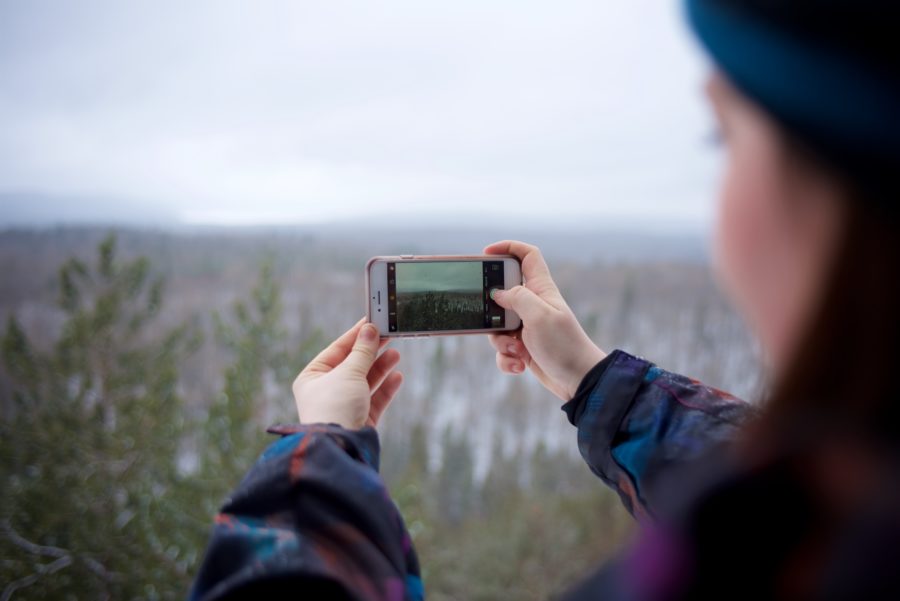
- There are many dedicated staff who work for Ontario Parks, but with a landscape of parks twice the size of Switzerland, it’s a big job to inventory and monitor our shared lands.
- Reporting your observations helps to build a database of information to inform park management, species-at-risk recovery efforts, research projects, and capital development projects.
- Despite current research, we still know relatively little about where species occur in our parks. More data will help us make better decisions!
- Apps like iNaturalist make it easy to become a citizen scientist. Download it today and start documenting!
Hike a trail every week

- Ontario Parks has over 2000 km of trails to explore, offering a variety of levels, from light hikes to challenging overnight journeys. These trails will lead you through some of the most scenic areas of the province.
- Hiking is for all seasons, so why not pledge to hike a trail every week? In the spring, you can go for walks through wildflower-lined hardwood forests.
- Spend your summer on boardwalk adventures across marshes or bogs surrounded by cattails and dragonflies.
- Take a stroll through a rainbow of fall colours that will take your breath away.
- Finally, hear the crunch of snow under your snowshoes in an evergreen forest
- Hiking is good for you too! You’ll experience a myriad of health benefits from your time in nature.
Pack out trash
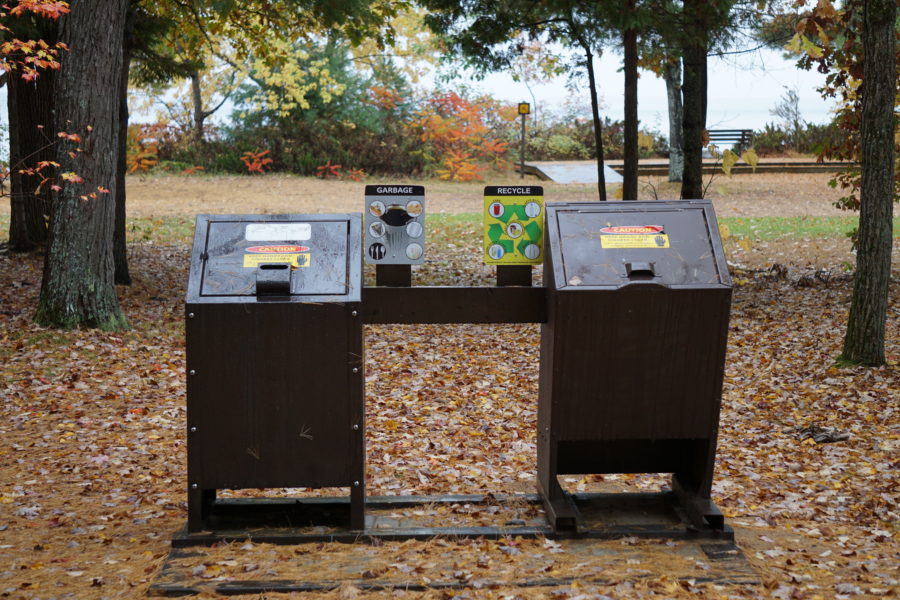
- Challenge yourself to pack out everything you brought in to the park, plus at least ten pieces extra of litter.
- Leaving a place in the same or better condition than when you arrive will encourage others who follow you to do the same.
- When you visit parks, please make sure garbage and recycling is put in its place, or consider taking the waste you create home with you. Too often improperly sorted recycling ends up in the landfill.
Use refillable water bottles
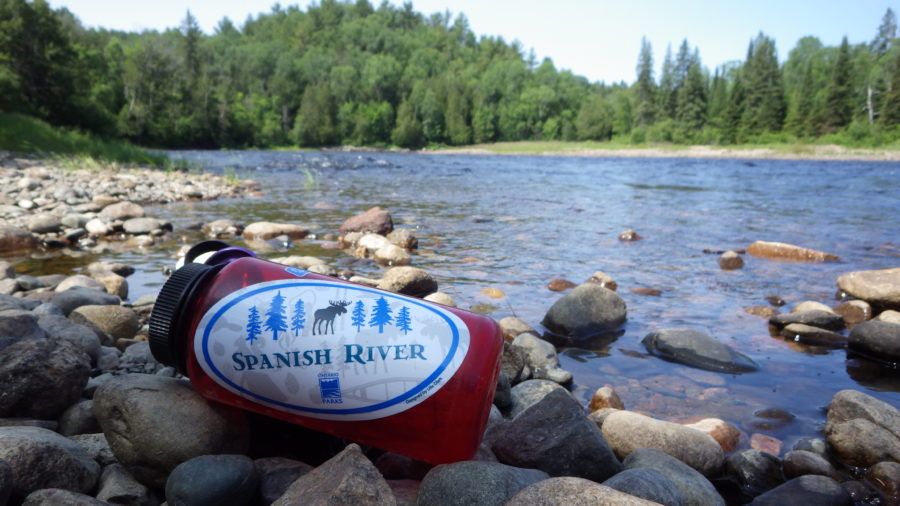
- Drinking bottled water creates unnecessary plastic, which may not end up being recycled.
- There is an alternative: travel with re-usable containers and use filling stations or taps located at parks.
- Our tap water is strictly regulated by Health Canada and the Ontario government. Park water is tested weekly to ensure safety.
- If you stop buying one-time-use water bottles, we use less energy to make and transport bottled water.
Take a friend camping
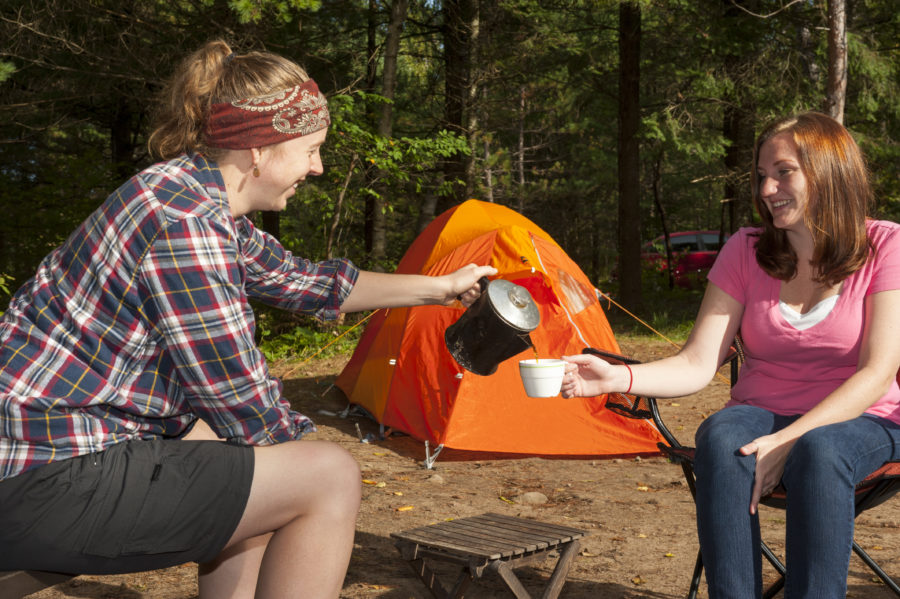
- If you experience nature, you are more likely to value it and protect it.
- There are many Ontarians who have never had the chance to sleep under the stars, catch a fish, paddle a canoe, climb a tree, or swim in a lake.
- If you know someone like that, please invite them along on your next park outing.
- You can also let them know about our Learn to Camp program!
Create the next generation of eco-stewards
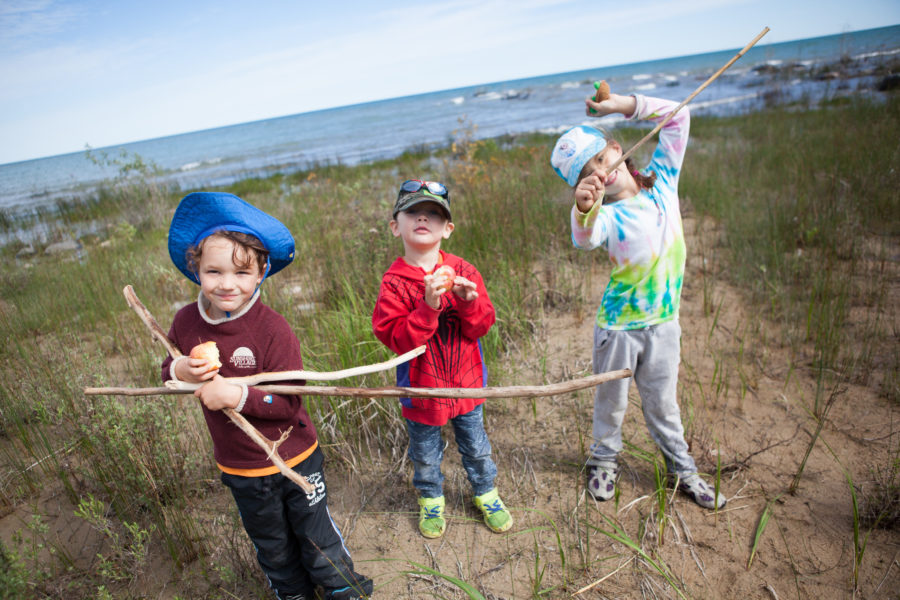
- Recent research shows that if you give kids aged five to ten an immersive experience in nature, it will lead to a lifelong love for the environment and a sense of stewardship for the earth. You’ll also likely produce more creative thinkers!
- It’s okay if you are not at the level of Bob Izumi or Jane Goodall. Check out our education programs, Discovery drop-ins, and Ontario Parks in the Classroom programs!
- No matter where you live in Ontario, there is a provincial park within reach. Use our Park Locator to find a park near you!
Here’s to 2019!
Let this be the year to prioritize spending time in nature, and protecting it for generations to come.
“Be the change that you wish to see in the world.” – Mahatma Gandhi

